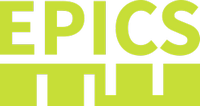Speaker
Description
The SwissFEL Low-level RF (LLRF) system controls more than 30 RF stations based on EPICS with the version 3.14.12. Except for performing general device controls, like configuring the RF/LLRF devices and acquiring RF data (e.g. RF waveforms), the LLRF system performs other complicated functions like RF signal processing, feedback and feedforward control and RF system calibration and optimization. All these functions increase significantly the complexity of the LLRF software. In order to better architect the LLRF software within the frame of EPICS, two object-oriented frameworks were developed with C++ and Python respectively aiming to designing complex and clearly architected software based on EPICS. The C++ framework can be used to design EPICS modules with a generic ready-to-use device support, while the Python framework can be used to design soft IOCs as Channel Access (CA) clients using the pyCafe CA library designed by PSI. Both frameworks tend to hide the details of EPICS which enables programmers starting their development without knowing much of EPICS. This presentation will give a brief introduction to the frameworks and their applications in SwissFEL LLRF system will be highlighted.

